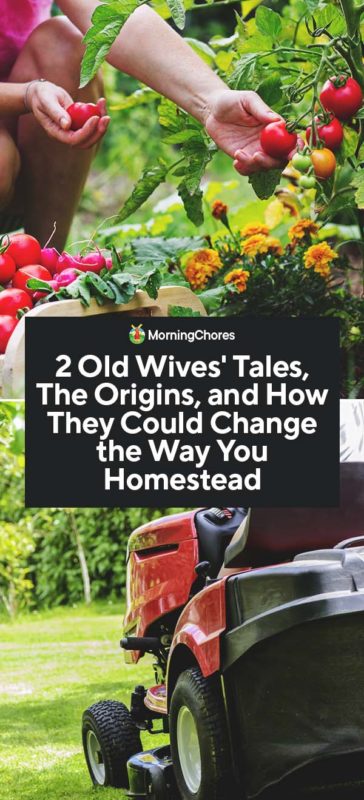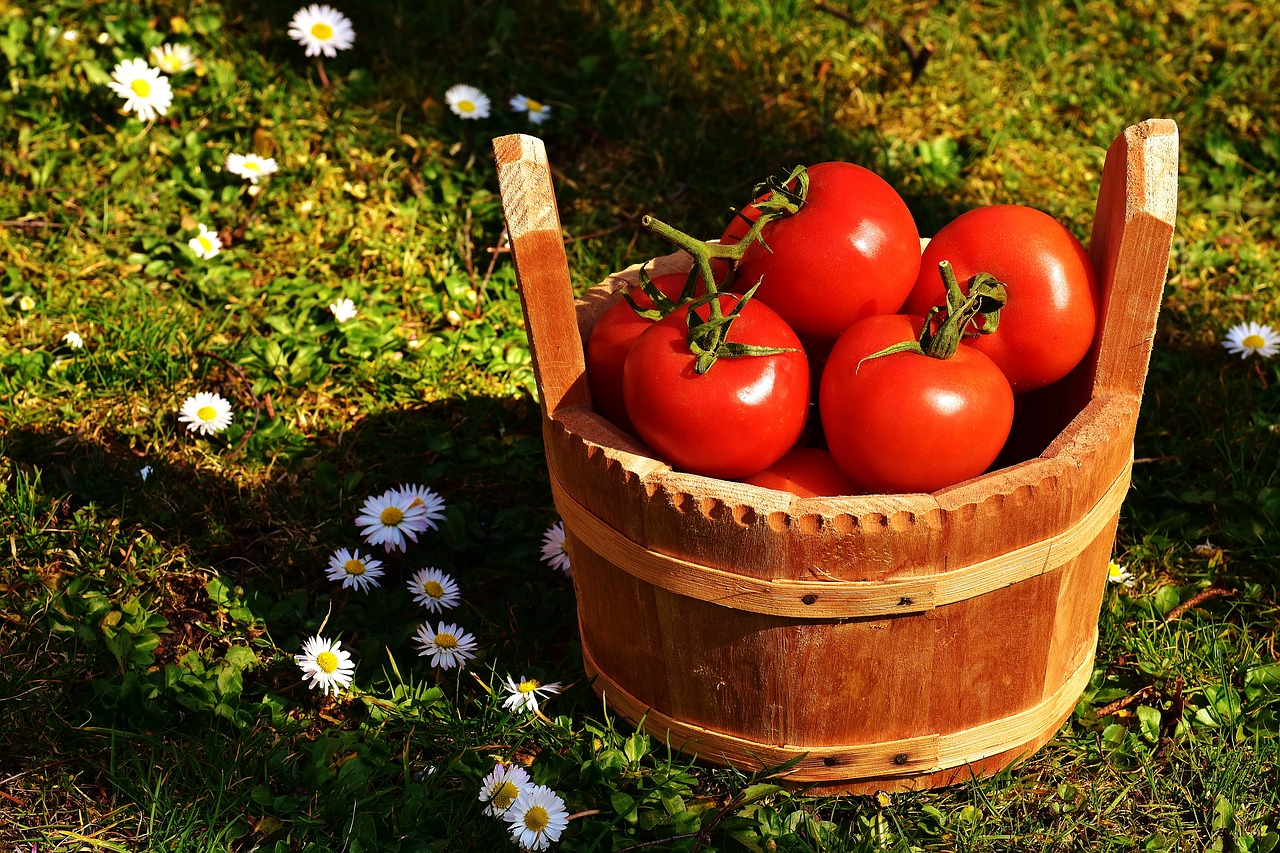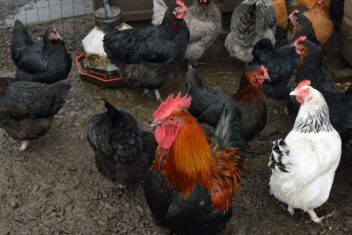Next month, my mother-in-law will have been gone for two years now.
I miss her every day, but when the anniversary of her death rolls around, I find myself remembering different things she taught me and making sure I don’t lose the bits of wisdom I gained from her.
She was the one who taught me how to homestead. Being raised poor in the foothills of the Appalachian Mountains, she had to know how to survive.
As she got older, she didn’t let her upbringing slip away, though she prospered in life and didn’t need the survival skills as much. She passed those skills and lessons on to me.
Lately, I’ve been remembering two ‘old wives’ tales’ she quoted regularly. One was during canning season and one was for winter.
I’m going to share those tales with you and explore whether they’re only tales or if there’s truth hidden in them.
Here’s a bit of wisdom from my mother-in-law which will hopefully help you in your journey of homesteading:

Old Wives’ Tales #1: That Time of the Month Can Spoil Your Produce

If you hang around homesteading forums for long, you’ll see this question pop-up frequently. It was once thought if a woman was having her monthly cycle, she could curdle milk, cause the meat to turn colors, kill plants, kill tomatoes on the vine, and even cause tomatoes to spoil while canning.
My mother-in-law was a big believer in these old wives’ tales. I didn’t argue with her, but I found it hard to wrap my mind around.
At this point in time, most have found this to be nothing more than a tale, but there are a few interesting theories as to how it was created and a few good explanations as to why it isn’t true. Here’s what you should know:
1. Created by Women for Women

In the times of our ancestors, women were thought of as little more than property and a way for men to have an heir to pass on his family name.
Not all men fell into this category, but the thought process was clearly much different than it is today. At least things operate quite differently in my household.
I may be the only female, but my husband and children treat me with great respect and don’t take my efforts around our home and farm for granted.
However, the women before me may not have had the same respect. By saying a woman was having her monthly cycle, it was her way of ‘sticking it to the man’ when keeping this tale going.
Instead of working out in the fields, butchering animals, preserving food, or milking animals, she was able to have an entire home to herself for seven days every month.
She was told to stay away from helping outdoors and preparing meals. Consider how creative and intelligent this was on our ancestors’ part.
They got a week’s vacation every month and no one batted an eye!
2. Sanitation is Different in Current Times
Though many people are under the impression women created this tale, I’m more inclined to think it started out of truth, but women carried the torch for the continuance of this story as times changed.
We all know if you cut your finger when canning, gardening, handling meat, or handling raw milk, the blood will cause whatever you’ve touched to become unsanitary and ultimately spoil.
Blood is a carrier of food-borne bacteria. Therefore, when it comes in contact with food (or if too much blood is left in meat) it causes the food to spoil faster than it would without contamination.
I’m going to try to present this as delicately as I can, but in ancient times women didn’t have the hygiene products we have today.
Many didn’t wear the same undergarments we do today, and it could’ve been quite easy for blood to have been spread throughout the garden while working or to have it spread among the produce, raw milk, or meat by unclean hands.
They didn’t have the same sanitation practices as we do currently. Therefore, it may have been smart for women to stay away from these things initially.
Yet, as times progressed and sanitation improved, women most likely still stuck with this story either because it’s what their mothers had told them, or they figured they’d get a well-deserved break once a month.
3. Women Work in Factories

If these old wives’ tales were true, women who work in food preservation factories would be required to take their cycle week off every month.
Since this doesn’t happen (we’d all know if it did because women around the world would be lining up to work in these factories), we can assume our monthly cycles have no impact on food preservation.
My mother-in-law was an extremely smart lady, but I’m convinced these are nothing more than old wives’ tales, and we women are no longer going to get our breaks around the homestead once a month.
But ladies, if your husbands don’t read this article, your secret is still safe with me!
Old Wives’ Tales #2: What Thunder in Winter Means

My mother-in-law had another tale she told regularly during the winter months. Any time she heard thunder in winter, she’d say we’d have snow within seven days.
Is there any truth to this tale? Surprisingly, yes, there is!
When you hear thunder, it lets you know there’s something going on in the sky which is making the perfect conditions for a thunderstorm.
This happens when a cold front runs into a warm front and begins to push it out of the way. If this cold front is mixed with moisture, you’ll get snow during the winter months.
Though scientists aren’t convinced of the seven-day estimation, it’s quite clever of our ancestors to take notice of these weather patterns and figure out what was going on above them without the scientific tools we have today.
Another interesting fact, based around old wives’ tales, is if snow is currently falling, and you’re hearing thunder or seeing flashes of lightning (known as thundersnow), science proves you’ll get a heavier snowfall.
Again, this has a great deal to do with unstable air and the amount of moisture in the sky.
It’s fun to look at the stories passed on to us from previous generations. I like to understand their origin, find out if they’re still true today, and it fascinates me as well to see how intelligent our ancestors were.
They figured out a great deal of information without the fancy tools and equipment we have. Though my mother-in-law may have missed the mark on some things, I’m incredibly grateful for the knowledge she tried to give me, and I know I’m a better person because of her.













